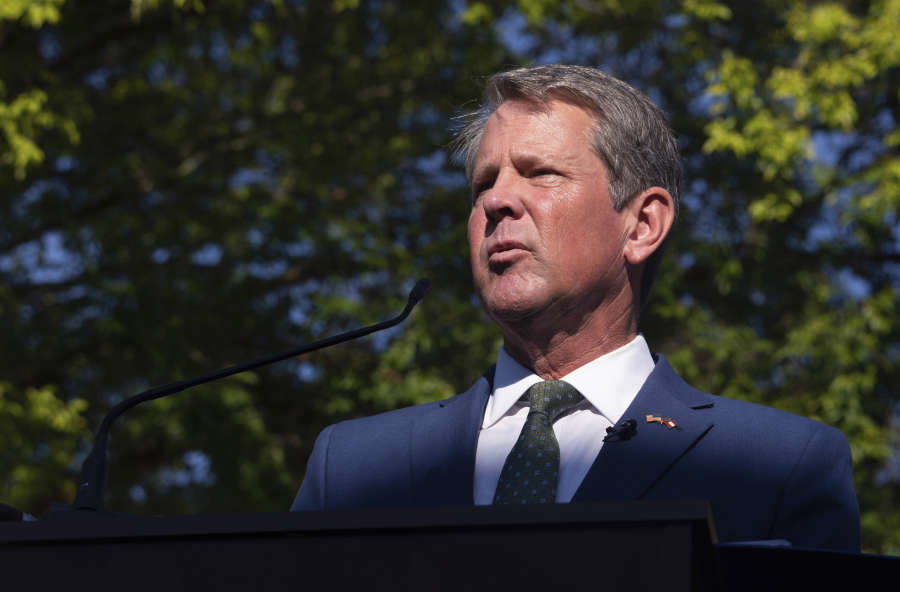Georgia Governor Brian Kemp, buoyed by the state’s substantial $11 billion surplus, outlined a comprehensive spending proposal of $1.8 billion. The plan significantly emphasizes infrastructure development, healthcare training expansion, and measures to reinforce the state’s economic foundation. Kemp’s announcement signals the robust financial standing of Georgia, allowing Republicans the latitude to embark on sizable initiatives even amid a backdrop of slowing state revenues.
Infrastructure Allocations and Expanding Health Care Training
Governor Kemp’s plan allocates $1.5 billion to expedite roadwork and introduce a freight infrastructure program under the Georgia Department of Transportation. A noteworthy $200 million is designated for cities and counties, enhancing support for local governments in maintaining roads and bridges. The proposal further earmarks $250 million for the Georgia Environmental Finance Authority, facilitating water and sewer projects. Kemp aims to infuse $50 million into a housing development fund and proposes an annual expenditure of at least $6 million for such grants in the future.

Kemp also advocates for $178 million to establish a new public dental school at Georgia Southern University and $50 million to create a separate medical school at the University of Georgia. These investments, coupled with the existing Dental College of Georgia and the medical program in collaboration with Augusta University, are intended to address the growing demand for healthcare professionals in the state.
Legislative Measures on Lawsuits and Unionization
Governor Kemp reaffirmed his commitment to legislative measures aimed at limiting lawsuits, citing their impact on insurance premiums and business impediments. While initially pledging to implement changes within a legislative session, Kemp acknowledged the complexity of the issue, signaling a phased approach. He also outlined plans to make unionization more challenging, proposing restrictions on businesses benefiting from state incentives to prevent employees from unionizing without a formal election. The governor’s move aligns with the Georgia Chamber of Commerce’s agenda, emphasizing the protection of workers’ “right to opportunity” and resisting external influences.
Expanding on Economic Measures and Tax Reforms
In addition to the ambitious infrastructure and healthcare initiatives, Governor Kemp expressed a commitment to furthering tax reforms. Republican House Speaker Jon Burns signaled an openness to expanding health care coverage for low-income adults through Georgia’s Medicaid program, emphasizing a private option that lowers premiums. The proposed increase in the deduction for a child on state income taxes from $3,000 to $4,000 aims to provide financial relief for families, reflecting a broader strategy to stimulate economic growth and support Georgia’s citizens. Burns’ call for a reduction in property taxes aligns with the state’s broader fiscal strategy, seeking a balance between prudent financial management and economic stimulus.

Public Safety and Education Enhancement
Governor Kemp’s vision extends beyond fiscal matters, addressing public safety and education. He aspires to boost the number of state troopers from 700 to 1,000, enhancing law enforcement capabilities to ensure the safety of Georgia’s communities. The expansion of state-paid prekindergarten classes reflects a commitment to investing in the educational foundation of the state’s youth. These measures underscore a holistic approach to governance, recognizing the interdependence of economic prosperity, public safety, and educational excellence in securing Georgia’s future. As the state navigates a complex landscape, Governor Kemp’s comprehensive strategy aims to position Georgia as a model for sustained growth and resilience.